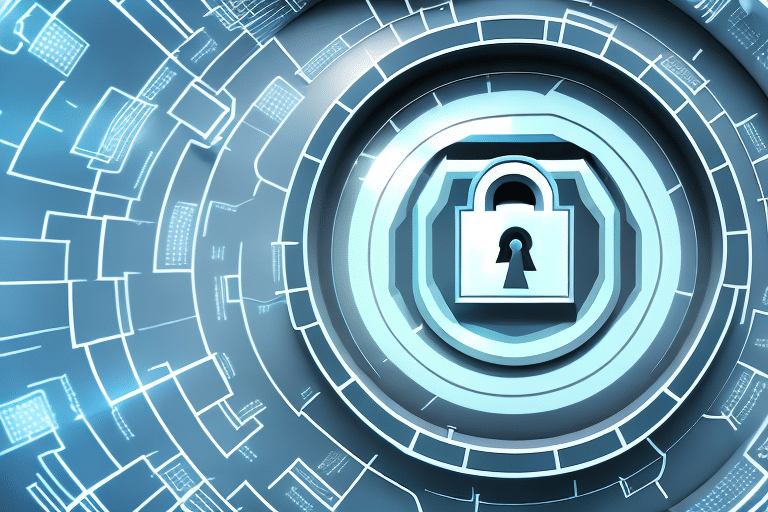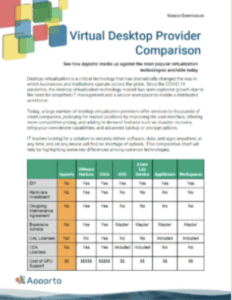VPN Security: Are VPNs Safe and Secure?
In today’s digital age, where cyber threats are becoming increasingly sophisticated, the need for online security has never been more crucial. Virtual Private Networks (VPNs) have gained popularity as a way to enhance online security and protect our personal information. However, the question remains: are VPNs safe and secure? In this article, we will delve into the world of VPNs, evaluate their safety, identify potential risks, and provide you with the tools to make an informed decision when choosing a VPN service.
Understanding VPNs: A Brief Overview
Before we explore the safety of VPNs, let’s clarify what a VPN actually is. Simply put, a VPN is a service that allows you to create a secure connection to another network over the internet. It acts as a virtual tunnel, encrypting your data and ensuring that your online activities remain private and protected from prying eyes.
VPN technology has evolved over the years to offer not just security but also anonymity and freedom online. By masking your IP address and encrypting your internet traffic, VPNs enable you to browse the web without being restricted by geographical boundaries or censorship. This means you can access region-locked content, bypass government surveillance, and protect your personal information from cyber threats.
What is a VPN?
A VPN, or Virtual Private Network, acts as a middleman between your device and the internet. It redirects your internet traffic through a remote server, hiding your IP address and providing you with a new one. This effectively masks your identity and location, making it harder for anyone to track your online activities.
Furthermore, VPNs offer different protocols for encryption, each with varying levels of security and speed. The most common protocols include OpenVPN, L2TP/IPsec, and IKEv2. Users can choose the protocol that best suits their needs, balancing between security and performance based on their online activities.
How Does a VPN Work?
When you connect to a VPN server, it encrypts your data before sending it through the tunnel. This encryption makes it virtually impossible for anyone to intercept and decipher your information. It acts as a shield, protecting your sensitive data from hackers, malicious websites, and even your internet service provider (ISP).
Moreover, VPNs can be used on various devices, including computers, smartphones, and routers, ensuring that all your internet-connected gadgets are safeguarded. This versatility allows you to secure your online presence across multiple platforms, whether you’re at home, traveling, or using public Wi-Fi networks.
The Importance of VPN Security
Now that we understand the basics of how a VPN works, let’s explore why VPN security is crucial in today’s digital landscape.
With the increasing prevalence of cyber threats and data breaches, the need for robust VPN security measures has never been more critical. VPNs, or Virtual Private Networks, establish secure and encrypted connections to protect your online activities from prying eyes and malicious actors.
Protecting Your Online Privacy
In an era where online privacy is increasingly at risk, VPNs play a vital role in safeguarding your personal information. By encrypting your internet traffic, VPNs prevent anyone from snooping on your online activities, ensuring that your private information remains private.
Moreover, VPNs offer anonymity by masking your IP address and location, making it challenging for advertisers and trackers to monitor your online behavior. This added layer of privacy empowers users to browse the web freely without the fear of being tracked or targeted based on their online habits.
Securing Your Data Transfers
Whether you’re accessing your bank account, shopping online, or sending sensitive work-related emails, VPNs can provide an added layer of security. By encrypting your data transfers, VPNs shield your information from potential cyber threats, such as eavesdropping or data interception.
Additionally, VPNs can help bypass geo-restrictions and censorship, allowing users to access region-locked content and websites securely. This feature is particularly beneficial for travelers or individuals living in countries with strict internet regulations, enabling them to browse the internet without limitations.
Virtual Desktop Provider Comparison
Evaluating VPN Safety
Not all VPNs are created equal when it comes to safety. It is essential to do your due diligence and consider some key factors before selecting a VPN service.
When evaluating the safety of a VPN, it’s crucial to also consider the logging policies of the service providers. Some VPNs may keep logs of your online activities, potentially compromising your privacy and anonymity. Opt for VPN services that have a strict no-logs policy to ensure that your online activities remain private and secure.
VPN Protocols and Their Security Levels
VPNs utilize various protocols to establish secure connections. These protocols determine the level of encryption and security provided. Well-established protocols such as OpenVPN and IPSec are generally considered the most secure options. It is important to choose a VPN that offers strong protocols to ensure the safety of your data.
In addition to the protocol used, the VPN provider’s infrastructure also plays a significant role in ensuring safety. A reliable VPN service will have a robust network of servers spread across different locations, allowing for better security and faster connection speeds for users.
The Role of Encryption in VPNs
Encryption is the foundation of VPN security. It scrambles your data, making it unreadable to anyone without the appropriate decryption key. Look for VPN services that utilize strong encryption algorithms, such as AES-256, to guarantee the highest level of security.
Moreover, the strength of the encryption key used by the VPN service is crucial in determining the level of security provided. Opt for VPNs that offer options for robust encryption key lengths, such as 2048-bit or 4096-bit keys, to enhance the security of your online communications and data transmissions.
Potential VPN Security Risks
While VPNs offer significant security benefits, it is essential to be aware of potential risks associated with their usage.
One important aspect to consider is the level of encryption provided by the VPN service. Strong encryption is crucial for protecting your data from potential cyber threats and ensuring your online privacy. It is recommended to choose a VPN provider that offers robust encryption protocols such as AES-256, which is considered highly secure.
VPN Logging Policies
Some VPN providers keep logs of user activity, compromising the privacy and security that VPNs aim to provide. It is crucial to choose a VPN service with a strict no-logs policy to ensure that your online activities remain confidential.
Additionally, it is advisable to research the jurisdiction in which the VPN provider operates. Some countries have data retention laws that may require VPN companies to store user data, posing a risk to user privacy. Opting for a VPN service based in a privacy-friendly jurisdiction can help mitigate this risk.
The Threat of DNS Leaks
A DNS leak occurs when your device bypasses the VPN tunnel, exposing your IP address and potentially compromising your online anonymity. To prevent DNS leaks, select a VPN service that includes built-in DNS leak protection.
Furthermore, it is essential to regularly update your VPN client to ensure that any known security vulnerabilities are patched. Outdated VPN software may be susceptible to exploitation by cyber attackers, putting your sensitive information at risk. By staying vigilant and keeping your VPN software up to date, you can enhance your online security posture.
Choosing a Secure VPN
When selecting a VPN, it is essential to consider several key factors to ensure that you are choosing a secure and reliable service.
Virtual Private Networks (VPNs) have become increasingly popular as individuals seek to protect their online privacy and security. With the growing concerns over data breaches and surveillance, choosing the right VPN service is crucial. In addition to encrypting your internet connection and masking your IP address, a secure VPN can provide peace of mind when browsing the web.
Factors to Consider When Selecting a VPN
Consider factors such as the VPN’s jurisdiction, connection speed, server network, and user-friendly interface. Opt for VPN services that offer robust security features, user-friendly applications, and positive user reviews.
Furthermore, take into account the level of encryption offered by the VPN provider. Look for services that use strong encryption protocols such as AES-256, which is considered military-grade and offers maximum security for your data. A VPN that supports features like a kill switch and DNS leak protection can also enhance your online security and privacy.
Red Flags to Avoid in VPN Services
Be wary of free VPN services that may compromise your security and privacy. While free VPNs may seem appealing, they often come with limitations such as data caps, slower speeds, and intrusive ads. Additionally, free VPN providers may log your online activities and sell your data to third parties, undermining the very purpose of using a VPN.
When evaluating VPN services, pay attention to their logging policies. Avoid VPN providers that keep extensive logs of your online activities, as this information can potentially be accessed by authorities or hackers. Look for VPN services that have a strict no-logs policy, meaning they do not store any information about your internet usage.
In conclusion, VPNs can be safe and secure when used correctly and when a reliable VPN service is selected. By understanding how VPNs work, the importance of VPN security, and the potential risks involved, you can navigate the vast VPN landscape confidently. By taking precautions and making informed choices, you can enjoy the benefits of enhanced online security and protect your digital privacy.



